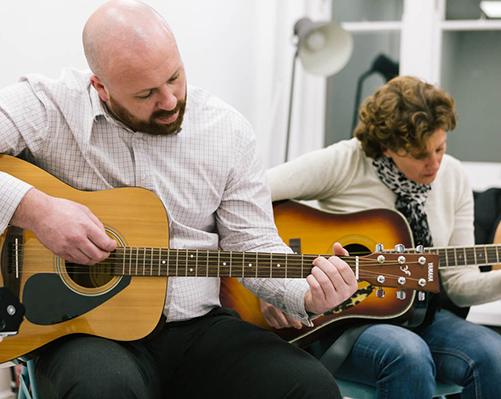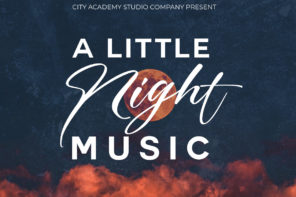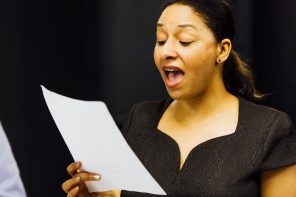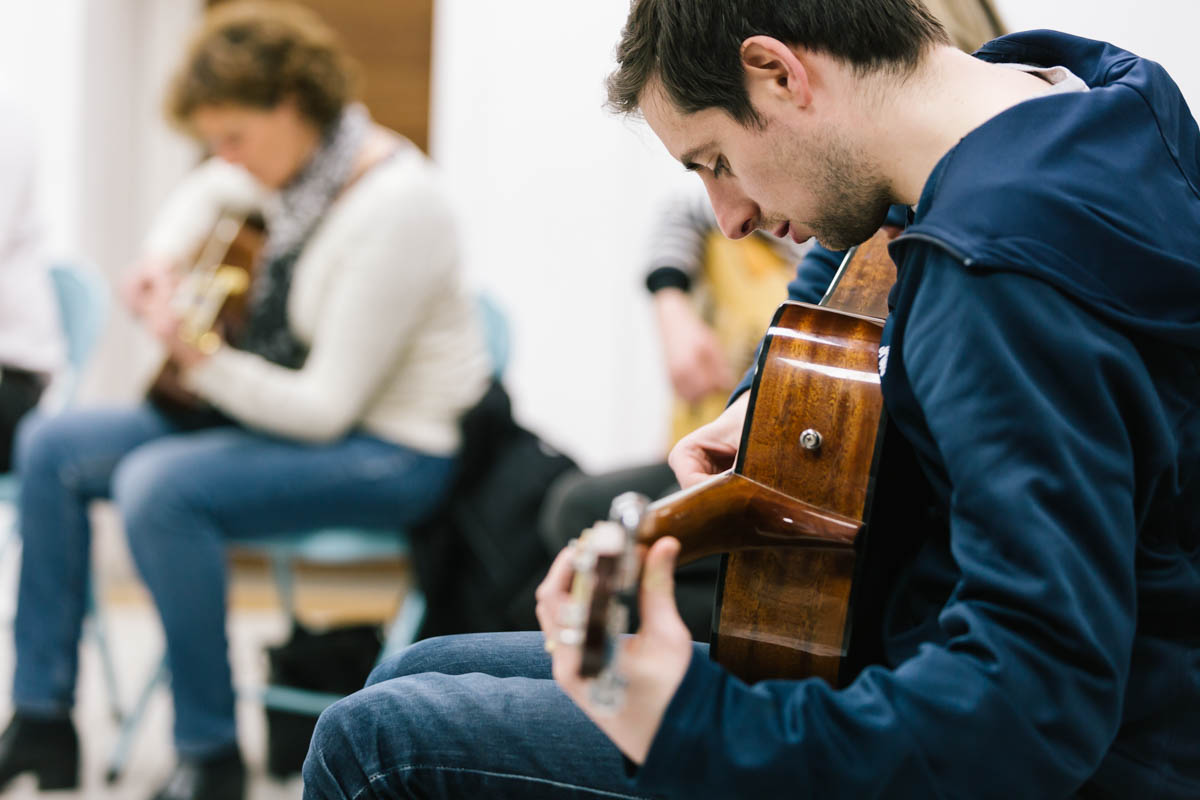
City Academy’s Guitar and Ukulele tutor Richard Burrell shares his top tips for perfecting your ‘at home’ practice! So if you’ve found yourself asking...
- ‘What is the best way to practice?’
- ‘How long do I practice for?’
- ‘When will I see results?’
- ‘How do I find the time to practice?
...keep reading for Richard's advice to help maximise your musical potential.
Finding Time to Practice
It’s understandable that with such busy lives, finding time to practice can be hard and often ends up being on the day of your next lesson. Squeezing in an hour of practice can seem substantial at the time but this approach does tend have its downsides. If you practice close to the start time of your lesson, you will most likely already be quite tired going in! You might end up finding it hard to keep up, not only physically, but mentally too!
The best approach is to space out your practice. Splitting an hours practice into 15-minute chunks has proven to be far more rewarding. Taking breaks between practice sessions really helps to improve your development. The connections in your brain will actually get stronger once you have allowed a break between practice sessions, especially during sleep! That's why spreading your ‘hour of practice’ over a number of days will actually help you learn quicker.
Good Practice Habits
Fine tuning exactly how you practice can be a challenge in itself. Try having a clear picture in your mind of what you want to achieve each time you sit down to practice. It might be tempting to get into the habit of playing the chords you already know or going up and down familiar scales, but tackling sections you know to be tricky and attacking them head on will prove much more gratifying in the long run! Play these slowly, breaking them into small sections, making sure to get it right at least three times before moving on. If you find yourself getting frustrated, taking a break and trying something else before coming back to it can prove to be a very effective method.
In tandem with this focused style of practice, it’s okay to relax a little when practicing exercises to strengthen muscle memory. It’s even okay to practice with something like a TV show on in the background. This can help you get more contact time with your instrument and strengthen key muscles. This additional, relaxed style of practice can give you a better feel and understanding of your instrument.
How Long? And When?
Knowing what it takes to maximise practice efficiency and implementing it into your everyday life doesn’t have to be a daunting task.
Going back to our first point, the best way to improve is to make practice a part of your everyday routine. You can start by applying a simple and practical rule of 10-20 minutes focused practice each day. This is a really good method to stick to when first starting to learn an instrument. Most people can find a time to squeeze this in at the start or end of the day. Setting daily reminders on your phone or setting your alarm that little bit earlier (if you’re really keen!) can help keep the momentum. Just like going to the gym, when you’re in the flow you can take pleasure and enjoyment in sticking to a routine!
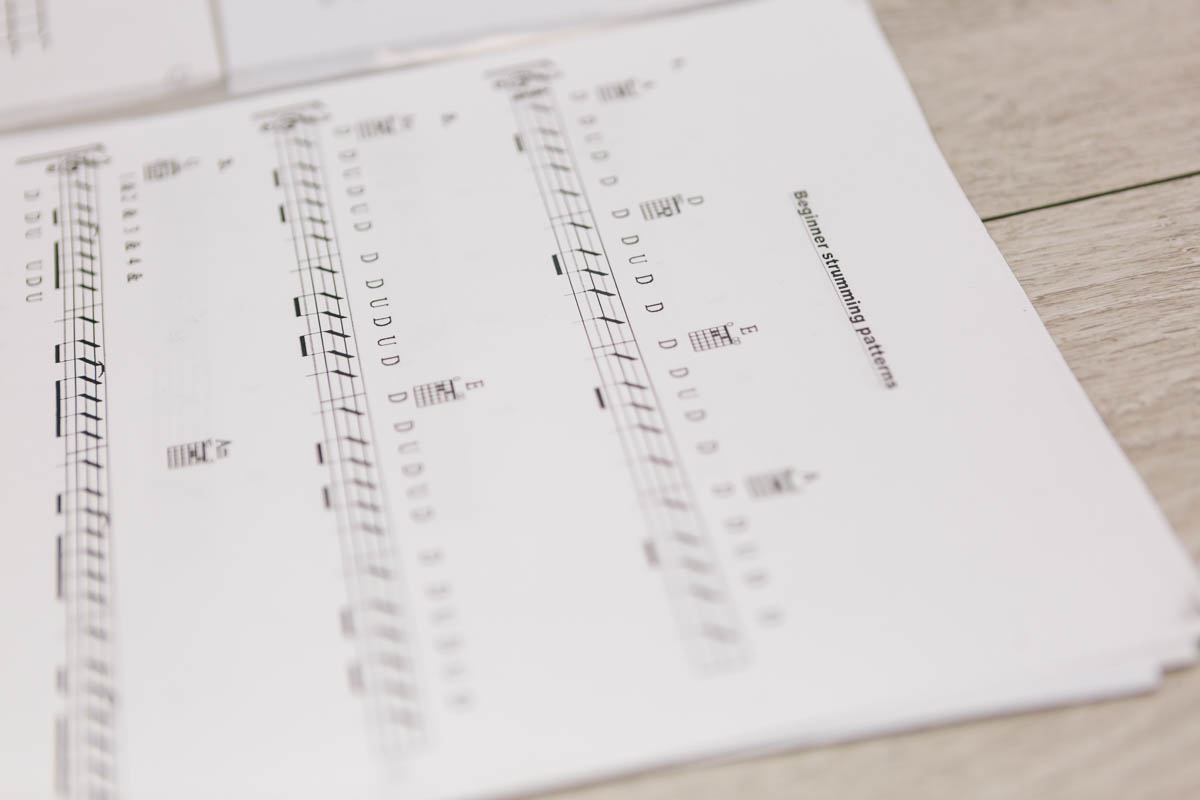
Achieve Your Goals
Goal setting is very important when practicing, it’s helpful to set both short and long-term goals:
Short term goals are great for giving you small boosts of achievement and help you put your recent progress into perspective – perhaps you could only play a song at half speed, but after a couple of weeks of practice you can play it at nearly full speed! Don’t take these types of achievement lightly, they can help keep you on the right track!
Big improvements in your playing might take longer but a more ambitious goal can help keep your practice motivated. For example, if you decided you wanted to perform at an ‘open mic’ or party before the end of the year; individual songs or sections might seem frustrating but don’t give up! Keep your longer term goal in mind and this will help drive you to overcome these smaller hurdles.
Maintaining Motivation
Believe it or not, it is possible to actually practice using the mind alone! Working out scales or memorizing notes and chords can actually help your overall understanding and appreciation of an instrument. A lot of professional musicians are able to figure out and ‘practice’ songs away from their instrument - which is an important skill to start developing. You can even improve overall musicianship just by listening and ‘tapping’ along to music on a regular basis – just as long as you focus on each aspect of the music and maintain concentration!
Even in times when practice seems more like a chore, remember where you started. Hard work does pay off! What you play easily now was probably very tricky when you first started. Don’t worry if you miss a scheduled practice session once in a while, you don’t have to feel like you have to do extra practice to catch up, just get back to it whenever you can! Remember that some practice is better than no practice!
Hopefully these techniques both inspire you to get practicing, and to get practicing in the best way!
 Richard Burrell is a City Academy Ukulele and Guitar tutor - City Academy run adult Music Lessons across central London, find a class for you below:
Richard Burrell is a City Academy Ukulele and Guitar tutor - City Academy run adult Music Lessons across central London, find a class for you below:
- All Music Lessons
- Ukulele Beginner Lessons
- Guitar Beginner Lessons
- Guitar Improver Lessons
To see all classes being taught by Richard Burrell CLICK HERE




